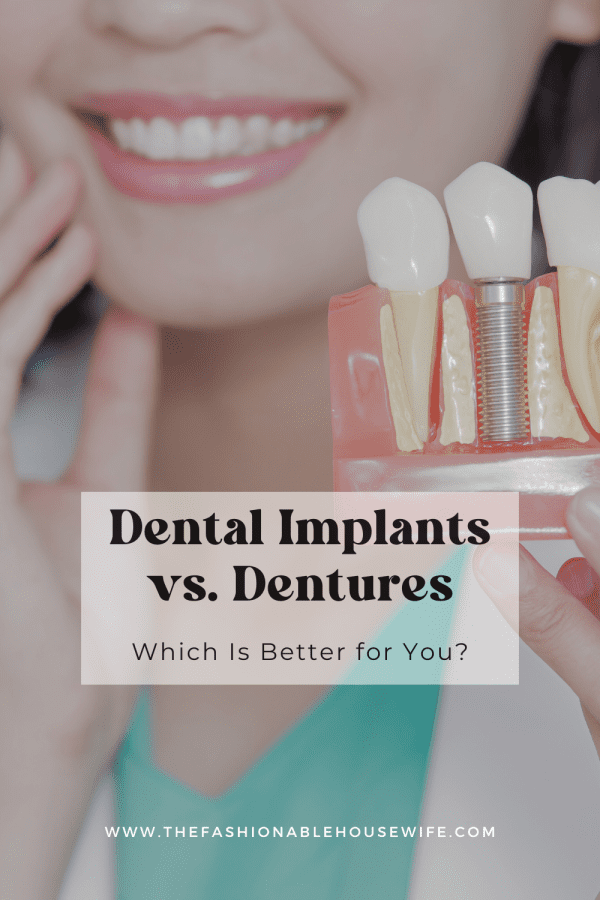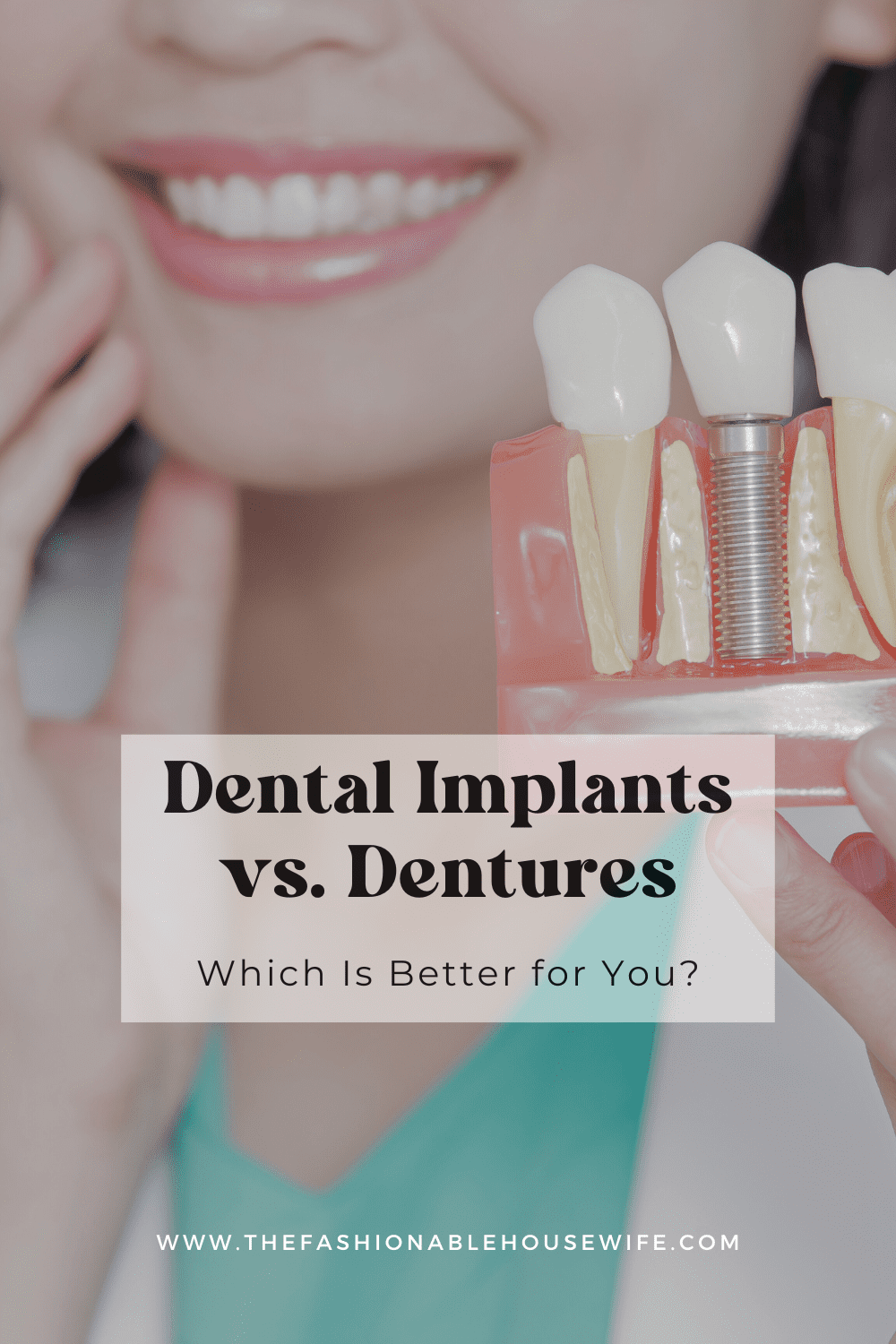Dental Implants vs. Dentures: Which Is Better for You?

Losing teeth can be a challenging experience that affects not only your smile but also your ability to eat, speak, and feel confident in social situations. Fortunately, modern dentistry offers two primary solutions for replacing missing teeth: dental implants and dentures. Each option has its own set of advantages and considerations.
Understanding the differences between these tooth replacement options is crucial for making an informed decision about your oral health. The right choice depends on various factors including your budget, lifestyle, overall health, and personal preferences. This comprehensive guide will help you navigate the decision-making process.
Understanding Dental Implants
Dental implants are titanium posts surgically inserted into your jawbone to serve as artificial tooth roots. Once the implant fuses with the bone through a process called osseointegration, a crown is attached to create a replacement tooth that looks and functions like a natural one.
“The implant procedure typically requires several months to complete, as the jawbone needs time to heal and integrate with the titanium post. Despite the longer treatment timeline, many patients find the permanent nature and natural feel of implants worth the wait and investment,” say the experts at sapphiredentistrykaty.com, a renowned family dentistry.
Implants can replace a single tooth, multiple teeth, or even provide support for a full arch of replacement teeth. This versatility makes them suitable for various degrees of tooth loss, from one missing tooth to complete edentulism.
Understanding Dentures
Dentures are removable prosthetic devices designed to replace missing teeth and surrounding tissues. Traditional dentures rest on the gums and are held in place by natural suction, adhesives, or by clasping onto remaining natural teeth in the case of partial dentures.
Complete dentures replace all teeth in the upper or lower jaw, while partial dentures fill in gaps when some natural teeth remain. Modern dentures are crafted from high-quality materials that closely mimic the appearance of natural teeth and gums, providing a more aesthetic result than ever before.
The denture fitting process is generally faster than getting implants, often taking just a few weeks from initial consultation to final fitting. This makes dentures an attractive option for those seeking a quicker solution to tooth loss.
The Cost Factor
Cost is often the primary consideration when choosing between implants and dentures. Dental implants represent a significant upfront investment, typically ranging from several thousand dollars per tooth to tens of thousands for full-mouth restoration. However, this initial cost should be weighed against their longevity.
Dentures are considerably less expensive initially, making them accessible to more patients. However, they require regular adjustments, relining, and eventual replacement every five to eight years. Over a lifetime, these recurring costs can add up substantially.
When evaluating cost, consider not just the immediate expense but the long-term financial commitment. Many dental practices offer financing options to help make either choice more manageable for your budget.
Functionality and Comfort
Dental implants function almost identically to natural teeth, allowing you to bite and chew with approximately the same force. This means you can enjoy all your favorite foods without worry, from crunchy apples to chewy steaks, without dietary restrictions.
Dentures, while functional, come with certain limitations. They typically provide about twenty-five percent of the biting force of natural teeth, which may require adjusting your diet. Some foods become difficult to eat, and sticky or hard foods should generally be avoided.
Comfort is another important distinction. Implants become a permanent part of your mouth and feel natural after the healing period. Dentures, especially new ones, may cause initial discomfort, soreness, or irritation as your mouth adjusts to their presence.
Maintenance and Longevity
Dental implants require the same care as natural teeth: regular brushing, flossing, and dental checkups. With proper maintenance, implants can last twenty-five years or even a lifetime. This durability makes them an excellent long-term investment in your oral health.
Dentures demand more intensive maintenance. They must be removed daily for cleaning, soaked overnight, and handled carefully to prevent damage. Special cleaning solutions and adhesives add to the ongoing maintenance requirements and expenses.
The jawbone preservation offered by implants is a significant health advantage. Because implants stimulate the bone like natural tooth roots, they prevent the bone loss that commonly occurs after tooth loss. Dentures do not provide this stimulation.
Impact on Daily Life
Living with dental implants closely resembles having your natural teeth. There are no dietary restrictions, no need for removal or special cleaning routines, and no concerns about slipping or clicking while speaking or eating in public.
Denture wearers must adapt to various lifestyle considerations. Social situations may cause anxiety about dentures slipping or falling out. Speaking clearly can require practice, and certain sounds may be initially difficult to pronounce correctly.
The permanence of implants provides psychological benefits that shouldn’t be underestimated. Many patients report increased self-confidence and improved quality of life, feeling liberated from the self-consciousness that can accompany removable dentures.
Health Considerations
Your overall health plays a crucial role in determining candidacy for dental implants. The surgical procedure requires adequate bone density, healthy gums, and good general health. Certain conditions like uncontrolled diabetes, cancer, or smoking may complicate the healing process.
Dentures are suitable for almost everyone, regardless of bone density or general health status. This makes them the preferred option for patients with health conditions that would make implant surgery risky or impossible.
Age is rarely a barrier for either option, though healing times for implants may be longer in older patients. Your dentist will evaluate your specific situation to recommend the most appropriate solution.
Making Your Decision
Choosing between dental implants and dentures is a highly personal decision that should be made in consultation with your dentist. Consider your budget, lifestyle, health status, and long-term goals when weighing your options. What matters most to you: initial affordability or long-term value?
Both dental implants and dentures can successfully restore your smile and improve your quality of life. The “better” choice depends entirely on your individual circumstances, priorities, and what you value most in a tooth replacement solution. Schedule a comprehensive consultation with your dentist to explore which option aligns best with your needs.

